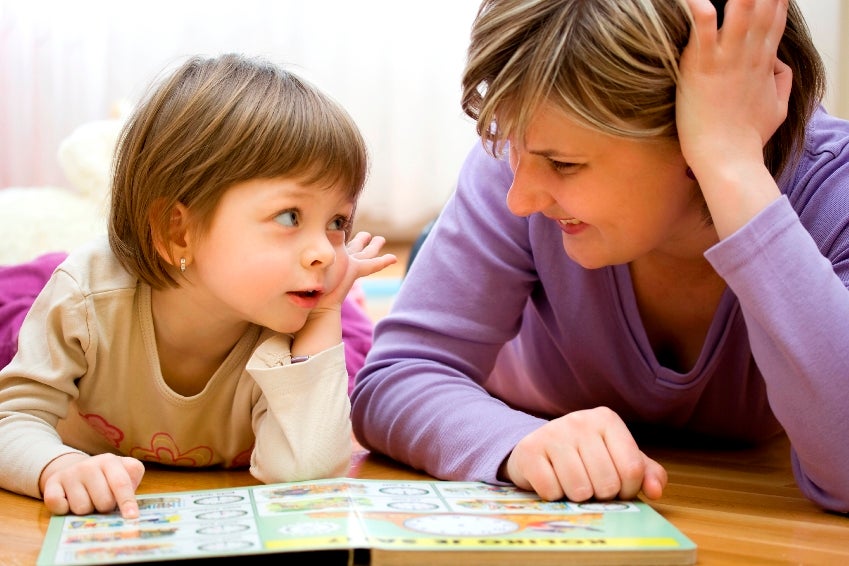Most of us can probably recall that special early childhood book that we insisted our parents, grandparents and caregivers read to us over and over again. That special book that made us fall in love with reading. For me it was Elsa Beskow’s enchanting The Tale of the Little, Little Old Woman.
For my youngest daughter it was Knuffle Bunny: A Cautionary Tale by Mo Willems that she wanted to hear so many times I still have it memorized word by word. Her favorite page was when Trixie’s dad dives back into the washing machine a second time, determined to find her stuffed rabbit. My daughter is now a nine-year old, who devours books of several hundred pages, and doesn’t need me to read to her any more. Yet, we cuddle up and read every night. It’s a moment we both treasure when we together explore different places, times, emotions and events.
High quality children’s books are a cornerstone of the literacy process. But identifying quality literature for young children is not always easy. To assist educators and parents in finding great stories for kids, the ALAS-IDB Award for best early childhood book celebrates excellent writing for young children in Latin American and the Caribbean. The 2015 ALAS-IDB Award finalists in the category of best early childhood book include four superb stories for children and caregivers to fall in love with.

In Menena Cottin’s The Black Book of Colors we meet Tomás who smells, feels, and hears colors. Next to each page is an image of the object associated with the color, printed in relief to give texture to the picture. This way, both seeing and visually impaired kids can perceive the “tartness of red” through the textured illustration of a strawberry on the vine. The lyrical text, printed also in perforated braille, overlays the images with a poetic narrative, depicting red as “sour like unripe strawberries and sweet like watermelon.”

In her book Federico & Federico, Elena Dreser playfully depicts the special connection between a grandfather and grandchild. When writing a letter, for example, grandpa Federico comes up with the content, but grandson Federico shows him how to send an email. Elena makes manifest the magic of a relationship that is so strong in many Latin American homes.

In Amalia Low’s books, animals come to life in strange ways: fat giraffes and skinny elephants, hairy rhinoceroses and bald flamingos, and a crocodile who cries real tears. The same is true for the 2015 ALAS-IDB finalist Tito & Pepita, which is the story of two hamsters who, aside from being neighbors, are also worst enemies. The book’s simple message –that we should forgive and love one another– is told in language that helps children appreciate differences while learning the pain that teasing can cause young children understand.

In Mireya Tabuas’ book Rojo, Azul, the colors serve as a metaphor for thinking about the various conflicts kids experience in their daily lives, while the geometric illustrations of blues and reds help them to visualize these differences. In this book, blue is certainly not red, red seems far from blue, until suddenly, the two colors merge into one. Her story speaks deeply to the conflicts children often face, with a simple lesson of resolution. Its wonderfully accessible logic won praise by the jury.
Join us for the award ceremony on 10 November 2015 in Washington DC and find out who wins! ALAS-IDB Awards will also be given in three other categories to celebrate the best early childhood center, educator, and innovation. The event will include interactive TED type talks, performances and conversations among prominent academics as well as educators and education leaders from the Americas and beyond.
A special guest from Sesame Street will talk to women from NASA who will share their experiences as Latin American women in science. Together they will call on Latin American and Caribbean education policy makers to invest in girls’ early math and science education. Michael Geisen, Winner of the United States Best Teacher of the Year Award will share his insights about how we can help children develop critical thinking and problem solving skills. Colombian singer Fonseca will describe his vision for how to improve education during the early years. We will also hear from Paloma Noyola, the Mexican girl who at 12 years of age was called the “Next Steve Jobs,” and many others.
[vsw id=”143070529″ source=”vimeo” width=”425″ height=”344″ autoplay=”no”]
Everyone is welcome to join us in the conversation! Visit www.iadb.org/alasidb for more information and to register. The event can also be seen on livestream.



I still remember that book, It was Epic of India where i read small story of great king of india.